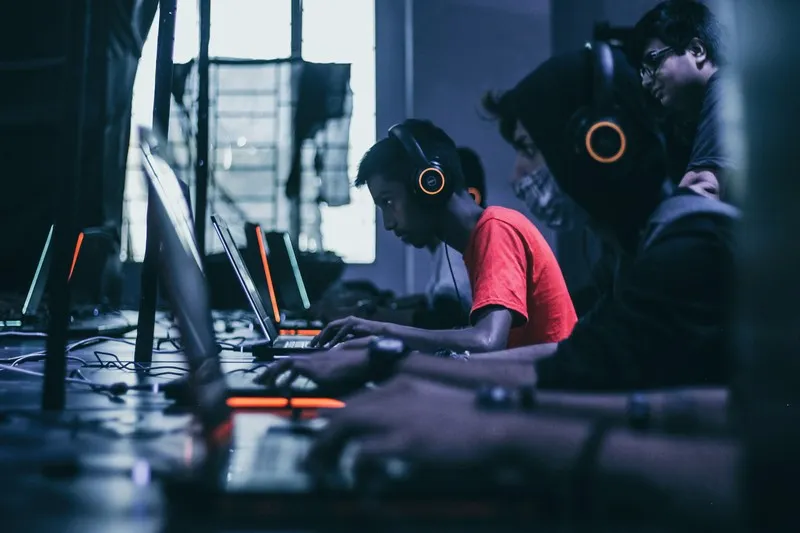Table of Contents
- Introduction
- The Cultural Power of Video Games
- Patterns of Racial Representation
- Intersectionality and Representation
- Resistance and Reimagining
- Industry Structure and Institutional Factors
- Implications and Consequences
- Moving Forward: Toward Inclusive Gaming
- Conclusion
Introduction
Video games have evolved from simple entertainment to a powerful cultural medium that reflects and shapes societal norms, ideologies, and power structures. As one of the most consumed forms of media globally, video games are instrumental in the social construction of race, identity, and belonging. This article explores racial representation in video games through a sociological lens, analyzing how race is depicted, the implications of these depictions, and what this reveals about broader cultural attitudes.
Understanding racial representation in games is essential for students of sociology, as it allows critical engagement with media texts that influence perceptions, attitudes, and behaviors. Through this lens, we consider how video games function as a site of both cultural reproduction and potential resistance. Media representations are never neutral; they are the result of decisions made within specific institutional and ideological contexts. As such, video games serve as a window into how society views race, and how racial hierarchies are reinforced or challenged.
The Cultural Power of Video Games
Games as Socializing Agents
Video games are not merely passive experiences; they are interactive, immersive, and often community-based. This interactivity grants them a unique place among cultural products, distinct from literature, film, or television.
- Games socialize players by transmitting values and norms.
- They offer narratives and character archetypes that shape understandings of identity.
- Multiplayer and online modes facilitate transnational and cross-cultural interactions that reflect and reproduce social hierarchies.
Video games, much like traditional institutions such as family, education, and religion, play a significant role in the process of socialization. From a sociological perspective, video games operate as ideological state apparatuses in the Althusserian sense, subtly reproducing dominant ideologies, including those concerning race. In this light, the pixelated or rendered body becomes a carrier of ideology, embedding assumptions about difference, hierarchy, and cultural worth.
Video Games and Symbolic Power
Pierre Bourdieu’s concept of symbolic power is especially relevant. The power to name, categorize, and assign value through representation has real-world consequences. Video games, as cultural texts, exert symbolic power by defining who is a hero, who is an enemy, and who is invisible. These narrative roles carry deep racial significance.
The visual coding of race—skin tone, accent, dress, behavior—becomes a shorthand for moral positioning. This not only reflects existing societal biases but also reinforces them, as players repeatedly engage with these scripts. The repetition of racialized tropes across genres and platforms helps to naturalize them, making the ideological content of games both pervasive and difficult to challenge.
Patterns of Racial Representation
Stereotyping and Caricature
One of the most prevalent issues in video games is the stereotypical portrayal of racialized characters. These representations often reinforce existing societal prejudices and serve to marginalize complex, authentic identities:
- Black characters are frequently depicted as athletes, criminals, or hypermasculine figures. Their roles are often limited to sidekicks, enemies, or comic relief, rather than protagonists with fully developed backstories.
- Latinx characters are commonly portrayed as gang members, drug dealers, or in exoticized roles that highlight otherness. These portrayals evoke colonial and orientalist tropes that construct Latinx identities as threats or spectacles.
- Asian characters often fall into two categories: the martial arts expert or the submissive, tech-savvy individual. These reductive portrayals erase cultural diversity and flatten ethnic nuance.
- Indigenous characters are rarely seen, and when included, are often reduced to mystical or spiritual stereotypes, divorced from contemporary Indigenous life.
These portrayals are not benign; they have cumulative cultural effects, shaping both in-group self-conception and out-group perceptions. By rendering marginalized identities one-dimensional, games contribute to symbolic annihilation—a term coined by media scholars to describe the underrepresentation or trivialization of particular groups.
Erasure and Underrepresentation
Perhaps even more telling than overt stereotyping is the persistent underrepresentation or complete erasure of racialized characters in video games. A majority of game protagonists, especially in high-budget (AAA) titles, are white males.
- The absence of racially diverse characters conveys a message about who belongs in imagined futures, combat scenarios, or heroic narratives.
- Games set in multicultural cities or speculative futures often erase racial diversity, implicitly presenting whiteness as the default.
- In historical games, there is a tendency to overlook the contributions and presence of racialized people, reinforcing Eurocentric perspectives.
From a sociological standpoint, this reflects systemic racism and white normativity in the cultural industry. The reproduction of these norms in game narratives, aesthetics, and mechanics indicates how deeply entrenched racial ideologies are within the structures of digital storytelling.
Customization and Agency
In some game genres—especially role-playing games (RPGs) and sandbox games—players can create their own characters. While this might appear to offer racial inclusivity, it often comes with limitations:
- Character creation tools frequently lack authentic features for non-white players, such as natural hairstyles, skin tone variation, or facial structures.
- Voice acting, animations, and NPC (non-playable character) responses may not align with the player’s chosen race, reflecting a narrow default model.
- When players of color choose to embody their own racial identity, they may still be subjected to in-game microaggressions or racism from other players.
Thus, customization does not automatically equate to meaningful representation. Instead, it often highlights the superficial nature of diversity initiatives that do not address deeper systemic issues in game design and narrative structure.
Intersectionality and Representation
A robust sociological analysis must go beyond race alone. Kimberlé Crenshaw’s theory of intersectionality is indispensable for understanding how race intersects with other identities, such as gender, class, sexuality, and ability.
- Black women in games are often hypersexualized or masculinized, embodying conflicting and dehumanizing tropes. Their narratives are frequently sidelined or tokenized.
- Latina characters are eroticized in ways that reflect colonial fantasies, portraying them as dangerous seductresses or exotic prizes.
- Asian women are frequently represented as submissive or exotic, reinforcing orientalist tropes that have long circulated in Western media.
- Queer characters of color are rarely represented, and when included, are often written through a lens that privileges whiteness or stereotypes.
These intersectional representations reinforce complex matrices of domination, echoing Patricia Hill Collins’s conceptualization of the “matrix of domination” within cultural production. The compounding effects of marginalization mean that players occupying multiple oppressed identities are least likely to see themselves represented in a respectful or central manner.
Resistance and Reimagining
Get the full article AD FREE. Join now for full access to all premium articles.
View Plans & Subscribe Already a member? Log in.





